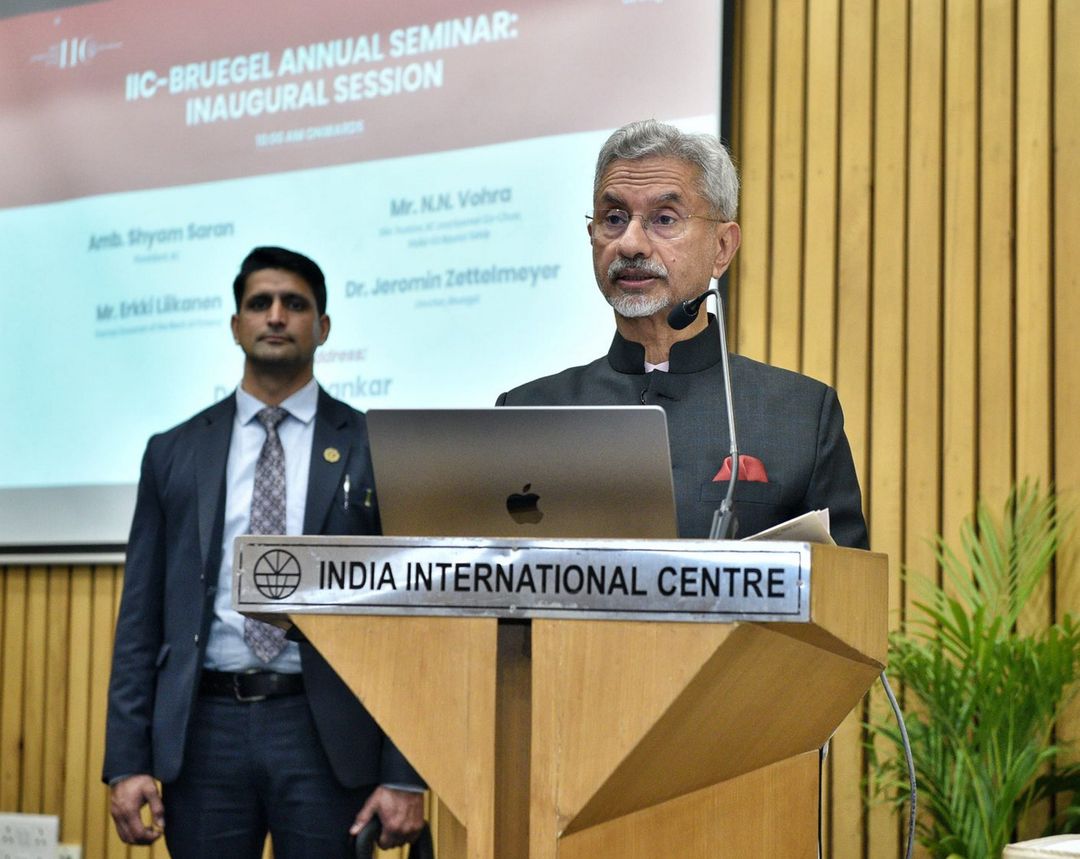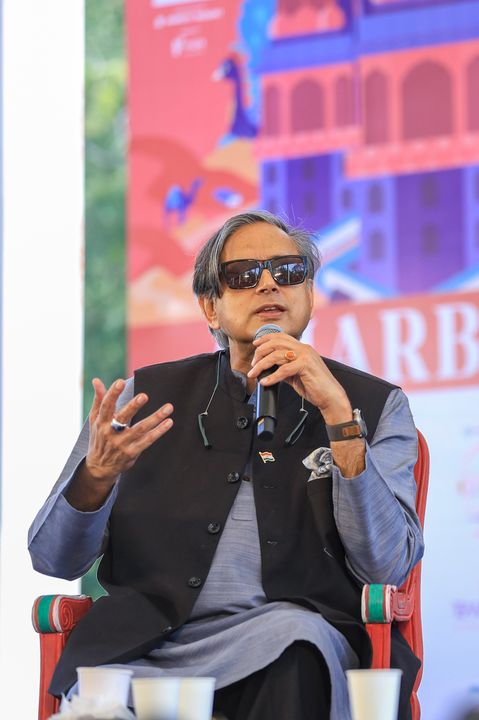
New Delhi, February 4 (PTI) – India’s External Affairs Minister S. Jaishankar emphasized the growing importance of the India-European Union (EU) partnership as a stabilizing force in a world increasingly marked by volatility and uncertainty.
Speaking at the inaugural session of the IIC-Bruegel annual seminar in New Delhi on Tuesday, Jaishankar noted that the strengthening of ties between India and the EU could play a crucial role in navigating the current global landscape. He stated that the relationship between the two sides is now more vital than ever, particularly as geopolitical and economic shifts unfold worldwide.
In his address, Jaishankar avoided directly naming any specific countries but hinted at the growing tensions in certain regions, remarking, “In our continent, international law has been disregarded with significant consequences.” He also pointed to discrepancies in the international community's approach to issues such as democracy and military rule, referencing varied standards applied to India’s eastern and western neighbors.
While affirming that principles should not be discarded, Jaishankar argued against an approach where certain powers dictate the global agenda, leaving others merely to observe. “The agenda can no longer be set by some, only to be observed by the rest,” he asserted, adding that this applies to both international relations and the internal politics of sovereign states.
Highlighting a sense of global change, the External Affairs Minister remarked, “We can all feel intuitively that the world is on the cusp of a big change.” He stressed that the transformations go beyond politics, touching on critical sectors like energy, connectivity, mobility, and technology.
India-EU Free Trade Agreement in Focus
Jaishankar also addressed the ongoing India-EU Free Trade Agreement (FTA) negotiations, calling for their swift completion. “I think it is time we get along with it,” he said, noting that recent years have seen more intensive engagement with the European Commission. “We expect that to be even more in the coming days, in fact very soon,” he added, emphasizing that deeper collaboration between India and the EU would benefit both sides.
The session, which saw the participation of notable figures including former foreign secretary Shyam Saran and various diplomats and foreign policy experts, also saw Jaishankar discussing global issues in the context of trade, technology, and climate action.
Global Conflicts and Uneven Application of Principles
Jaishankar went on to criticize the selective application of international principles, particularly in the context of ongoing global conflicts. “The world is currently witnessing two major conflicts, and these are often presented as matters of principle,” he observed. “Yet, the record shows how selectively and unevenly these principles have been applied.”
He pointed to the long-standing territorial aggression in India’s neighborhood and the global community’s failure to adequately address terrorism when it suited political interests.
Trade, Technology, and Global Rebalancing
In discussing the current global order, Jaishankar noted that both economic and political paradigms of the past were now being questioned. He reflected on the growing perception that global trading systems have been skewed to benefit a select few, leading to political backlash. “It was easy to give a cultural twist to these insecurities as well,” he said, referencing movements like Brexit and the rise of political figures such as Donald Trump, highlighting that these events had tangible causes.
On trade and geopolitics, Jaishankar pointed to the concentration of manufacturing in limited regions, which has broader geopolitical and economic consequences. He also mentioned the rising salience of a few dominant players in the global financial system, noting that many nations are now focused on “de-risking” the international economy.
Looking ahead, Jaishankar stated that the world is entering an era of “multipolarity and rebalancing,” urging global leaders to embrace this reality for the benefit of all nations.
Strengthening India-EU Ties for Global Stability
Jaishankar underscored that India and the EU share common interests and values, and despite occasional differences, the relationship between the two is anchored by a "sentiment much stronger." As both sides reassess the evolving global landscape, Jaishankar anticipates that areas of cooperation will continue to expand.
“A stronger India-EU relationship can be an important stabilizing factor,” he said, especially in a world that is increasingly unpredictable. He also acknowledged the greater strategic awakening in Europe in recent years, which could further deepen cooperation with India.
In terms of defense, security, and technology, Jaishankar pointed out that both India and the EU have already strengthened collaboration. He mentioned maritime security and the growing importance of the Indo-Pacific Strategy and the EU’s Global Gateway initiative as promising steps forward.
India-Middle East-Europe Corridor: Slow but Steady Progress
Turning to the India-Middle East-Europe Economic Corridor, Jaishankar acknowledged the challenges posed by the ongoing turmoil in the Middle East but expressed optimism about initial steps in the collaboration between India and the Gulf nations. He called the corridor a “game-changing” initiative and emphasized that India’s broader connectivity plans, stretching from the Atlantic to the Pacific, would play a key role in reshaping the region’s economic and geopolitical landscape.
As India and the EU look to deepen their engagement in defense, trade, and technological collaboration, Jaishankar concluded, “The India-EU relationship is more important than ever before.”
Last updated by a enewsx:
